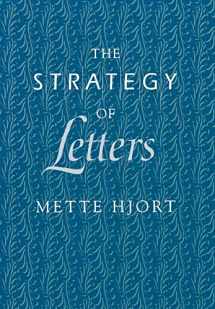
The Strategy of Letters
Book details
Summary
Description
Although literary theories describe a world of strategies―textual, discursive, interpretive, and political―what is missing is the strategist. Poststructuralists try to explain agency as the effect of large-scale systems or formations; as a result, intuitions about individual action and responsibility are expressed in terms of impersonal strategies. Mette Hjort's book responds to this situation by proposing an alternative account of strategic action, one that brings the strategist back into the picture.
Hjort analyzes influential statements made by Derrida, Foucault, and others to show how proposed conceptions of strategy are contradictory, underdeveloped, and at odds with the actual use of the term. Why, then, has the term acquired such rhetorical force? Since “strategy” evokes conflict, Hjort suggests, its very use calls into question various pieties of idealism and humanism, and emphasizes a desired break between modernism and postmodernism. It follows that a theory of strategy must explore some of the psychological implications of conflict, and Hjort pursues these implications through traditions as diverse as game theory, discourse ethics, and the philosophy of war. Unstable frames, self deception, promiscuous pragmatism, and social emotion are some of the phenomena she explores as she develops her account of strategic action in the highly competitive domain of letters.
In her reflection on strategy, Hjort draws on such literary examples as Troilus and Cressida, Tartuffe, the autobiographical writings of Holberg, and early modern French and English treatises on theater. For its well-informed and incisive arguments and literary historical case studies, this book will be invaluable to literary theorists and will appeal to readers interested in drama, philosophy and literature, aesthetics, and theories of agency and rationality.


We would LOVE it if you could help us and other readers by reviewing the book
Book review



